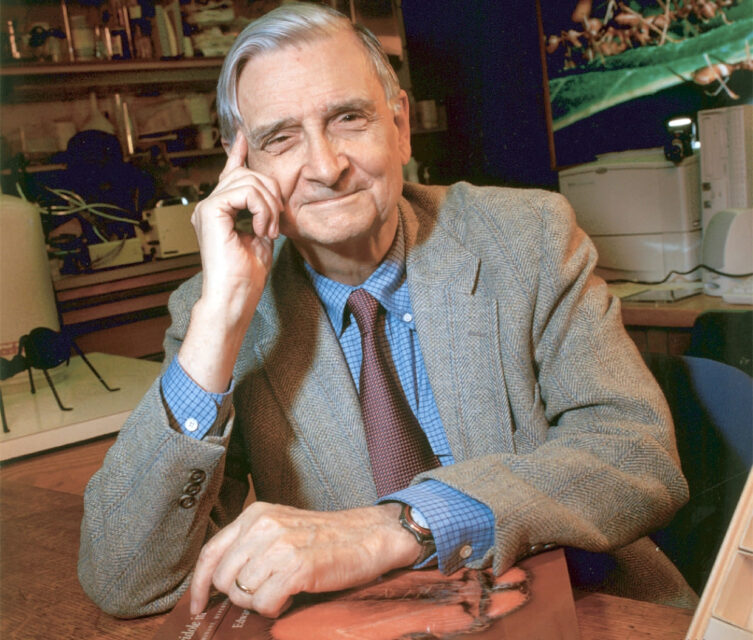(RNS) — Harvard University biologist Edward O. Wilson, perhaps the world’s most famous insect expert, was baptized by immersion as a Southern Baptist long ago.
“I went under the water,’ Wilson said. “I’m respectful. That’s one reason I can talk about it. I know the faith; I respect it.”
Wilson, a two-time Pulitzer Prize winner, is now working to get Baptists and other evangelicals to join with scientists in taking action to preserve the environment.
“This feeling of respect I have has been missing from the secularists,” Wilson said. “It’s high time the secularists made an effort to approach the huge majority of Americans who do belong to a religious faith. Let’s find out what we can work together on.”
Wilson’s books include “The Ants,” “On Human Nature,” “The Future of Life” and an autobiography, `”Naturalist.”
Wilson has been attacked at times by both conservatives and liberals for his sometimes controversial theories. He was a pioneer in the field of sociobiology, arguing that all animal and human behavior is influenced by genetics more than culture and free will.
In his latest book, “The Creation,” he challenges religious believers to join with secularists toward the common goal of saving creation.
“I know a lot of evangelicals are concerned about the environment,” Wilson said. “I didn’t mean to preach.”
He noted there are religious environmental organizations, such as the Evangelical Environmental Network and Green Cross, but argues that plenty more needs to be done.
“It’s time that both science and religion picked up more on the environment, particularly the living environment, the biological diversity of the world, the variety of life in it, which is disappearing fast,” Wilson said.
Saving the world will take teamwork, he said.
“Science is not doing enough; the faithful could do a lot more,” Wilson said. “The two together could do anything. Up to now, there had been a divide. The conservative religious people have seen science as on the left, and environmentalism as on the left. It should be a transcendent value that we all hold.”
Though he’s not religious, Wilson said he has always been fascinated with what he calls “knowing creation.”
It started as a kid, studying bugs.
“That’s all I did when I was a kid; I spent all my time outdoors studying nature, snakes, birds, bugs. I just love bugs. Every kid has a bug period. I never grew out of my bug period.”
A native of Birmingham, Ala., Wilson was baptized at a Baptist church as a youth, but in college embraced evolution and scientific theories about creation, abandoning Christian faith. “I sort of drifted away,” he said.
He describes himself as a secular humanist, but now he sees Christianity as a potential ally. Wilson argues for religious believers to accept the reality that global warming is influenced by human action.
“This is a reality we have to deal with now,” Wilson said. “It’d be darned foolish to ignore it.”
He wants Christians to embrace the idea of caring for creation.
“I hold out the hand of friendship on behalf of science,” Wilson said. “Let’s see what we can do together in an area where we solidly agree.”
Then, shifting to religious language, he put in Baptist terms.
“It’s an altar call from the scientists’ side,” Wilson said.
(Greg Garrison writes for The Birmingham News in Birmingham, Alabama. The views expressed in this commentary do not necessarily reflect those of Religion News Service.)





